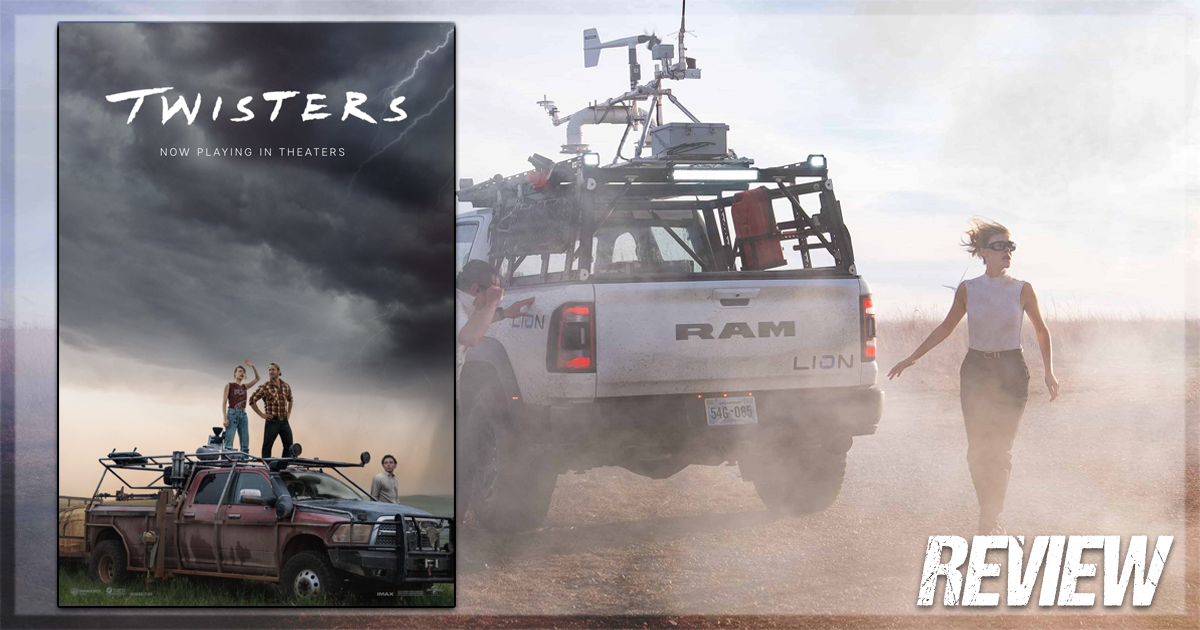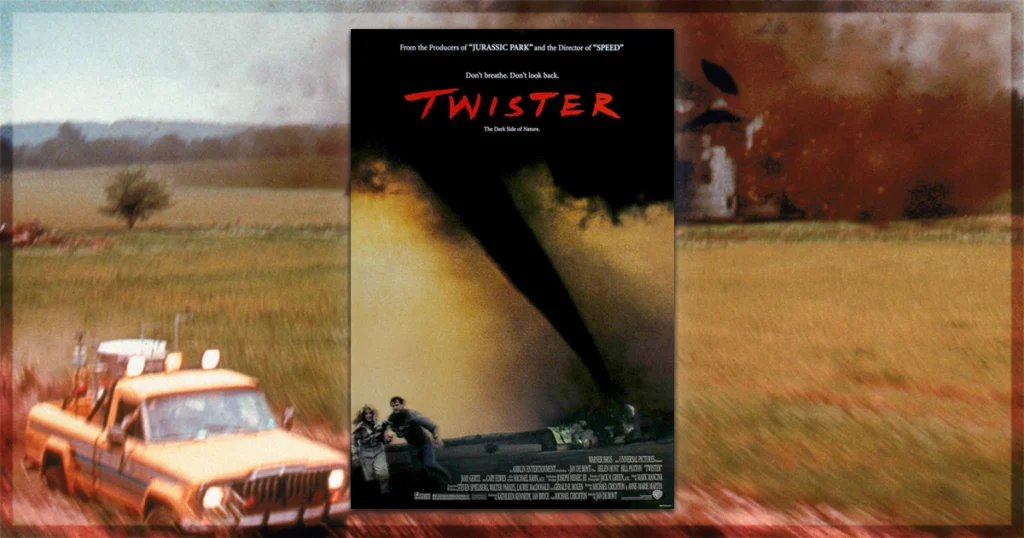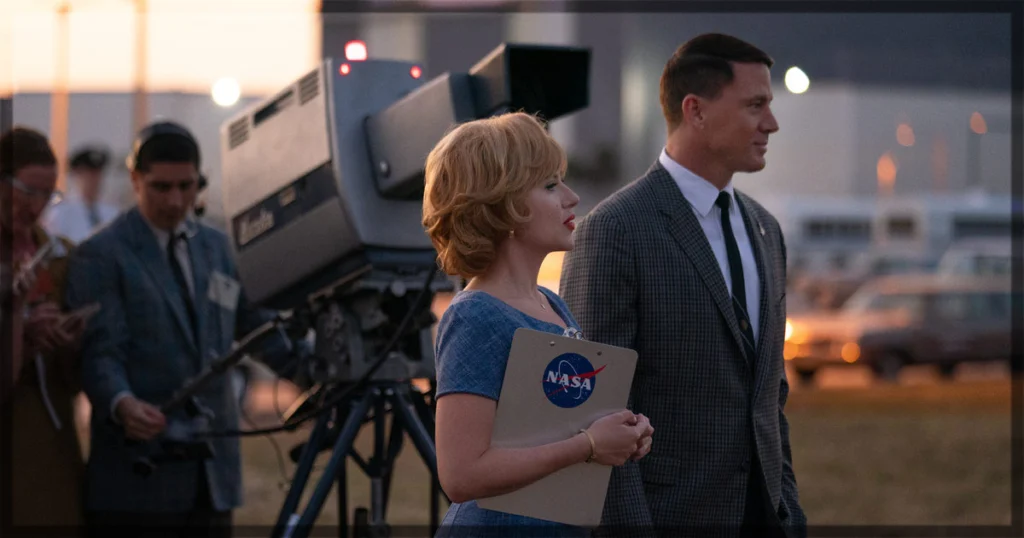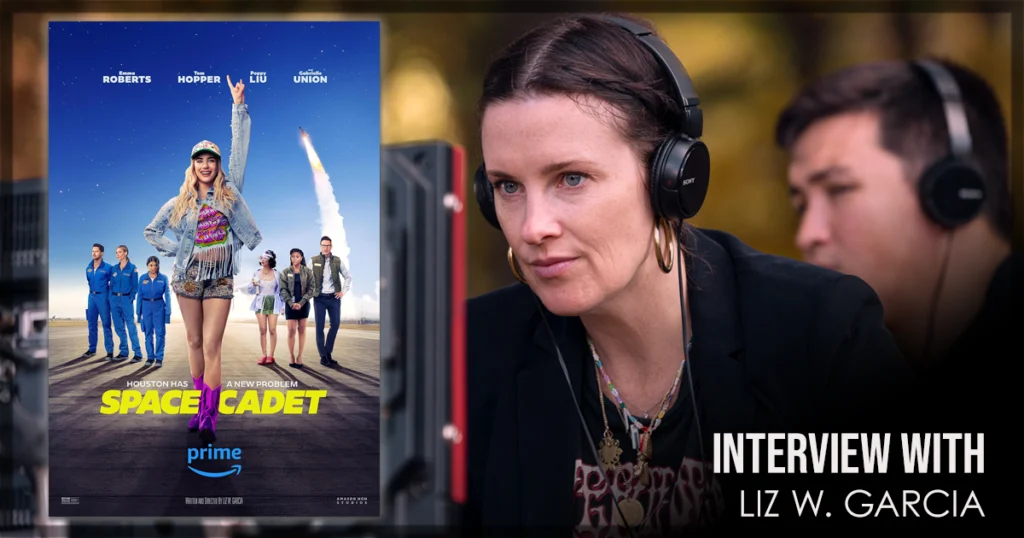In 2020, director Lee Isaac Chung made Minari, the story of an immigrant family in Arkansas with dialogue almost entirely in Korean. An extremely insulting debate sprang up about whether the movie was American, only possible because the immigrants weren’t white and not speaking English. Mr. Chung has now responded to those insults with Twisters, which is as American, in ways both good and bad, as it’s possible for a movie to be.
It’s purportedly a sequel to the 1996 movie Twister, which featured both a flying cow and a young Philip Seymour Hoffman (RIP), but other than the theme, there’s no direct connection. 1996 was also a world away from the present moment of constant connectivity, the relentless blare of social media, and an escalating anxiety that everything is getting a little bit worse all the time. But just as a tornado is a great deal of noise and calamity around a hollow core, there’s something missing at the heart of Twisters. It’s something small, the way a heart valve is small, but without a beating heart no story truly works.
The story of Twisters
Kate (Daisy Edgar-Jones, more on whom later) is a young but excellent meteorologist in New York City when she’s doorstepped by old friend Javi (Anthony Ramos). He’s set up his own weather-predicting company, which requires getting data from active tornadoes, which requires Daisy’s expertise, as no one instinctively understands the weather better than her. And since it’s required, soon Kate and Javi are in Oklahoma, analyzing the clouds alongside the rowdy eyes of Tyler (Glen Powell, and more on him later), who runs a ragtag outfit of ‘tornado wranglers’ seemingly out for thrills and millions of hits on their YouTube channel. It’s immediately clear to Tyler that Kate’s knack for predicting tornados surpasses even his, and rather than be threatened by this, he is turned on (and more on THAT later). So the question becomes what is the best use of all their skills as the storms keep getting worse and worse.
Now. This is a Hollywood blockbuster with a PG-13 rating made in the present moment. The vague love triangle that develops between Kate, Javi and Tyler is done through glances and body language – A kiss on the mouth? In this economy? – which is an unsatisfying snore. Not least because the movie’s Wikipedia page implies that Javi is gay, which is news! Perhaps screenwriter Mark L. Smith should have read that before he wrote the script. That’s part of the bad. Another part of the bad is the movie’s attitude to the smaller parts. Tyler’s rowdy team is played by a fascinating array of non-white actors: Katy O’Brian, Sasha Lane, Tunde Adebimpe and Brandon Perea. It also includes a white British journalist named Ben (Harry Hadden-Paton), who specifies he lives in south London between Streatham Hill and West Norwood, which is more characterization than Tyler’s team gets combined. They get to do a lot of screaming and occasional exposition, but what we learn about them as people wouldn’t fill a raindrop. Even the nameless guy at the airport, played by Paul Scheer, gets more personality than the characters of color. (I am giving a pass to the guy in the motel because he is played by James Paxton, the son of Bill Paxton, the late star of Twister.) The teams in Twister were lily-white, but they were able to express personality through dialogue instead of just their hair. So the representation is progress, but not the ideal kind.
A distressing attitude towards death in Twisters
But the most disturbing aspect of the movie is its American attitude to the deaths. There’s maybe a dozen shown, largely involving people being sucked away out of sight by the high winds, leaving an absence that is as actively ignored as possible. This is extremely disturbing, especially since the reason for Kate’s move to the city involves other deaths (which a review should not spoil). Kate returning to Oklahoma is bringing up a huge and obvious amount of PTSD, which is of interest to nobody except Tyler. Even Kate’s mother Cathy (Maura Tierney, always a delight), doesn’t go on about it, but the dynamic between them has a lived-in feel that the rest of the movie entirely lacks. This avoidance also fails to give Kate the kind of Oscar-bait monologue that the script could have stood a little more of. It’s repeated that a tornado’s impact is assessed only through the damage caused, so why is the movie so keen to minimize impact on human lives and feelings?
Instead, we get enough weather and its nuances to express Kate and Tyler’s feelings for them. The subtleties of how storms start, shift, and wreck everything in between feels palpable, a credit to cinematographer Dan Mindel and the VFX teams. One of the tornados is experienced inside an old-school movie theatre, which rudely interrupts a screening of James Whale’s Frankenstein, the moment when the influence of the production company Amblin Entertainment is most clearly felt. That little movie theatre is in a small town with a girls’ softball team and a trolley running down the main street. No apple pies were cooling on windowsills but nothing else was missing. This idea of the best part of America – a strong sense of place, a commitment to community, a determination to help each other, and a firm belief in the importance of science – is charming, but the idea isn’t backed up by the plot.
In the same way that the make-up of Tyler’s team is one kind of progress, Twisters expects that showing kindness without a profit motive is another victory for humanity. The effects of capitalism – such as how all the teams’ trucks and equipment, much less their salaries and motel bills, are paid for – aren’t. Javi is working for an insurance company which monitors weather risks for specific homeowners, but the fact that Kate works for the national weather company that looks after the entire nation is seen as not helping people? Please. The words’ climate change’ aren’t mentioned in the script either, so for the PR and marketing to go on about it is also irritatingly disingenuous. It used to be characters in movies were able to rebel against systems designed to crush them. Now they’re meant to understand why they’re being crushed. When people say that Hollywood blockbusters have fascism at their core these days, this is the kind of thing they mean. At best it’s disheartening. No matter how much Hollywood tries, no work of art can have its cake and eat it.
Tyler and Kate
But let’s not go too far into the political weeds and instead talk about the actors playing Tyler and Kate. Ms. Edgar-Jones came to the world’s attention during the lockdown of 2020, when her white-hot TV show Normal People met the touch-starved zeitgeist and made permanent stars of her and the equally unknown Paul Mescal. Mr. Mescal has taken a less conventional but equally starry path to career success (which I’ve discussed in some detail elsewhere), but Ms. Edgar-Jones has done the harder thing of going straight into headlining Hollywood blockbusters and major American television shows. It’s a more conventional career path involving more conventional roles, yet since Normal People she’s played no supporting parts and only American characters while not being American herself, very rare achievements. While the hysteria which follows Mr. Mescal hasn’t quite attached itself to her, Ms Edgar-Jones has established herself as a movie star capable of headlining a Hollywood blockbuster at the age of twenty-six. This specific achievement is even more impressive since Kate’s shifting self-confidence and self-belief is not verbalized by the script. Twisters’ coherence relies entirely on Ms Edgar-Jones’ facial expressions and body language to communicate what’s going on, and fortunately she’s more than capable of handling everything thrown at her.
And of course she is playing opposite the equally good big star Mr. Powell, who has achieved his movie stardom the slow way: first in major roles in streaming movies that in the olden days would have been called ‘women’s pictures,‘ then in major supporting roles in enormous blockbusters such as Top Gun: Maverick, and most recently by writing a meaty – in every sense of the term – leading part for himself in the scorching hot Hit Man. (I stand behind my extremely embarrassing review of that movie, even if the festival edit that caused spontaneous applause in October 2023 wasn’t what was released in June 2024.) Here, Mr. Powell is first seen getting out of a rigged-up truck wearing jeans, a big white cowboy hat and a tight white t-shirt, smiling with a mouth full of equally dazzling teeth. At first glance he charms everyone in sight completely silly, and loves it. All the choices Mr. Powell makes in this movie are ones which are in service to the overdue movie-star image he’s building for himself, that of a secretly sensitive jackass who not just loves a strong woman, but respects her.
That respect is the best thing about Twisters. Here no one bats an eye at the women working as scientists entirely equally to the men, and there’s none of the traumatic backstory that Twister had to go to some trouble to create in order to justify Helen Hunt’s character’s then-unusual career choice. The fact that Javi’s team is dudes-only apart from Kate is seen as an embarrassment and the sexism of some of them is proof of their villainy. The movies are catching up to the times. It’s not perfect of course: when Tyler experiences physical pain and/or comes extremely close to death he barely even grimaces, although in a moment of fear for Kate he does allow his eyes to fill with tears. For a man to do that kind of emoting in an American movie is a downright surprise these days, sorry to say. More progress, though not entirely forward.
Final thoughts on the film
And yet. If we go further back in time to disaster movies such as The Towering Inferno or The Poseidon Adventure, even King Kong, those movies knew that the action setpieces had to be matched by actors showing us what it feels like to experience such life-changing events. But in Twisters, the disaster happens, and then it’s over. The skies clear, the main characters affirm that they are fine, and despite the death and destruction surrounding them, they simply walk away. It’s actually kind of insulting. Repeatedly coming close to death by choice or by accident should alter a person, even if that person is just a character in a movie. We in the audience deserve to understand how to feel those emotions, and how it changes a person to feel these motions.
And the excellent actors in Twisters deserved a chance to show us this, instead of having to pretend that everything was and is completely fine. The fact that they couldn’t just goes to show everything is getting a little bit worse all the time. Creeping, nauseous dread shouldn’t be the main after-effect of a summer blockbuster. If we can’t have sex, we should at least have a good time. But instead, Twisters makes one thing clear: disaster is coming, over and over again, and we’re not going to like it. If this is where American movies are going, there’s definitely trouble ahead.
Twisters is now in theaters.
Learn more about the movie, including how to buy tickets, by visiting the website for the title.




